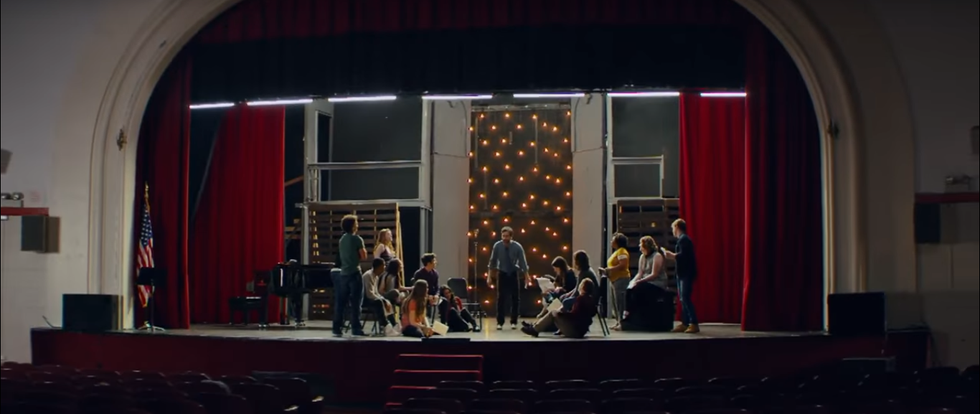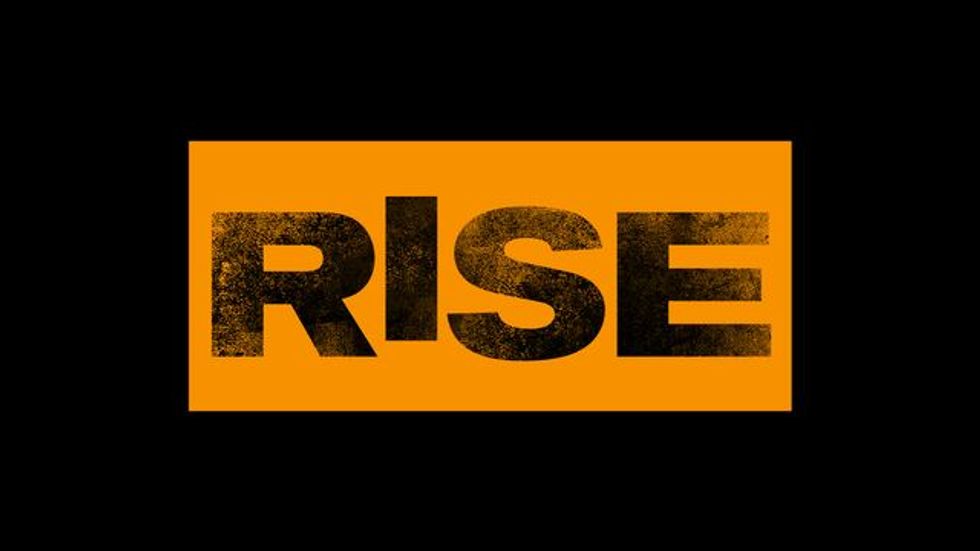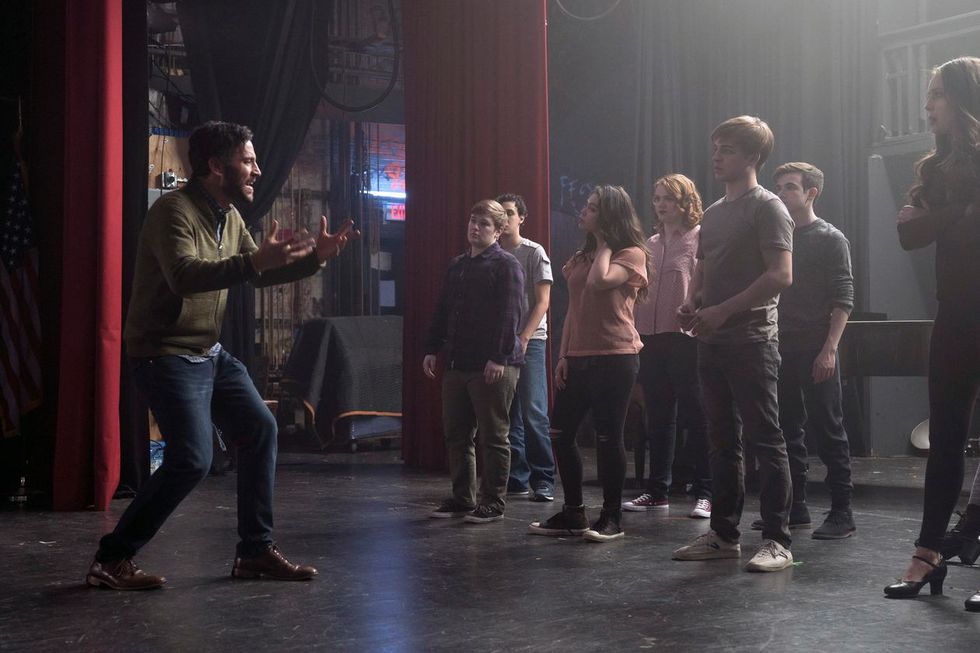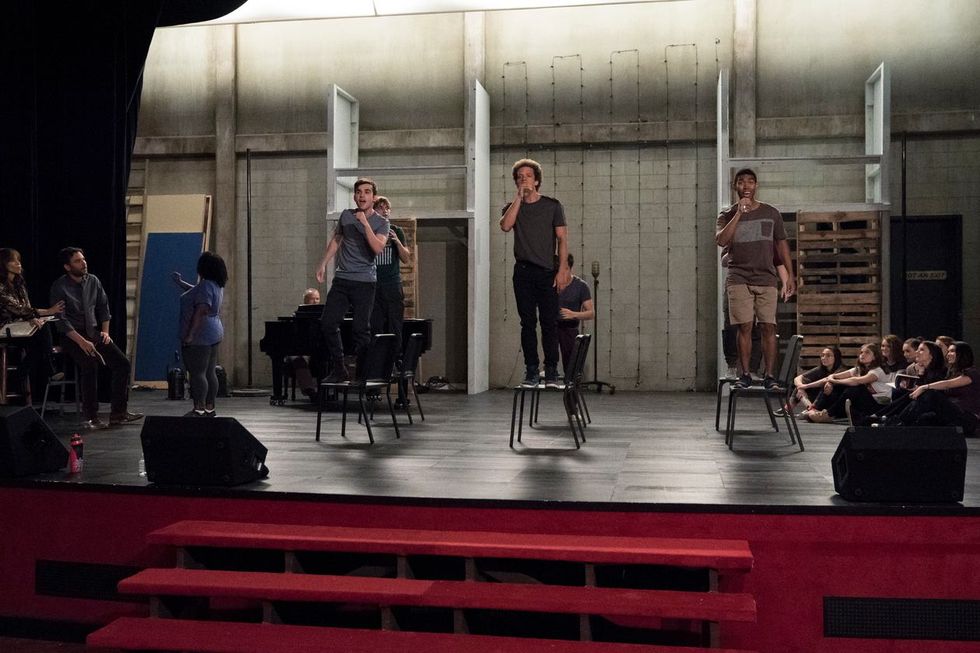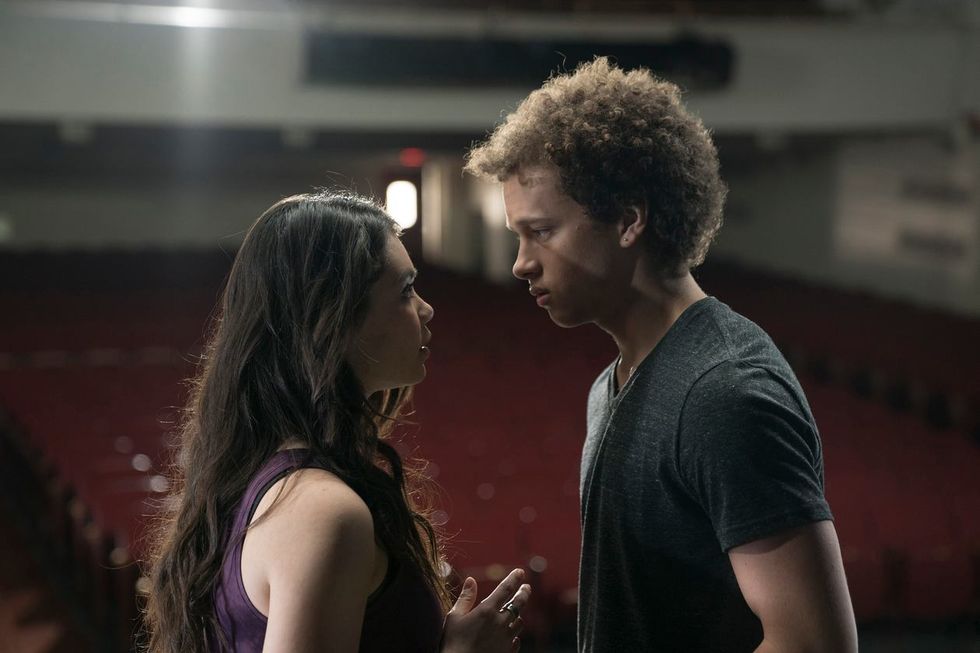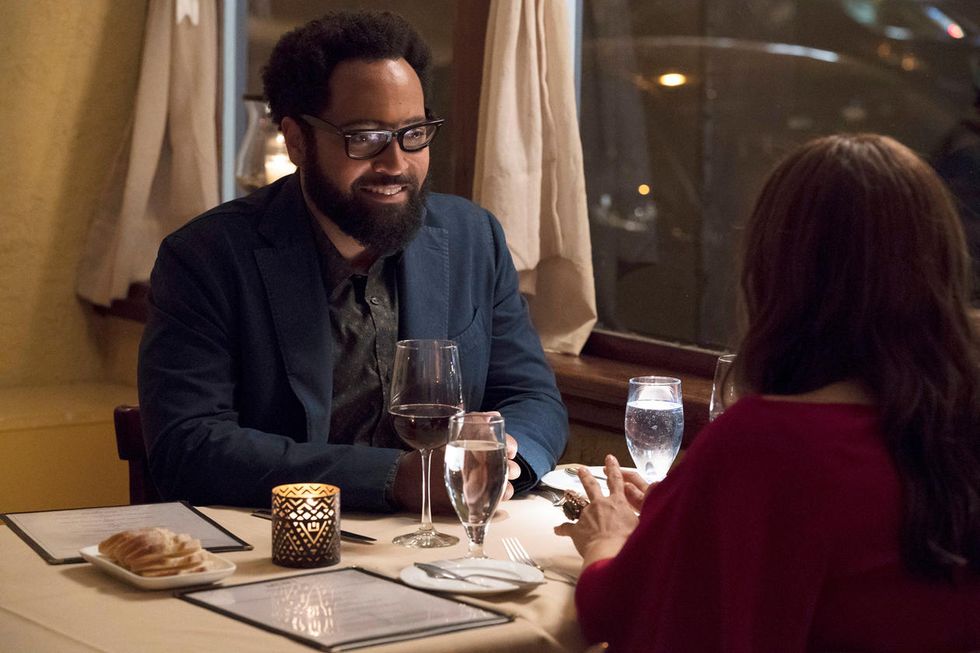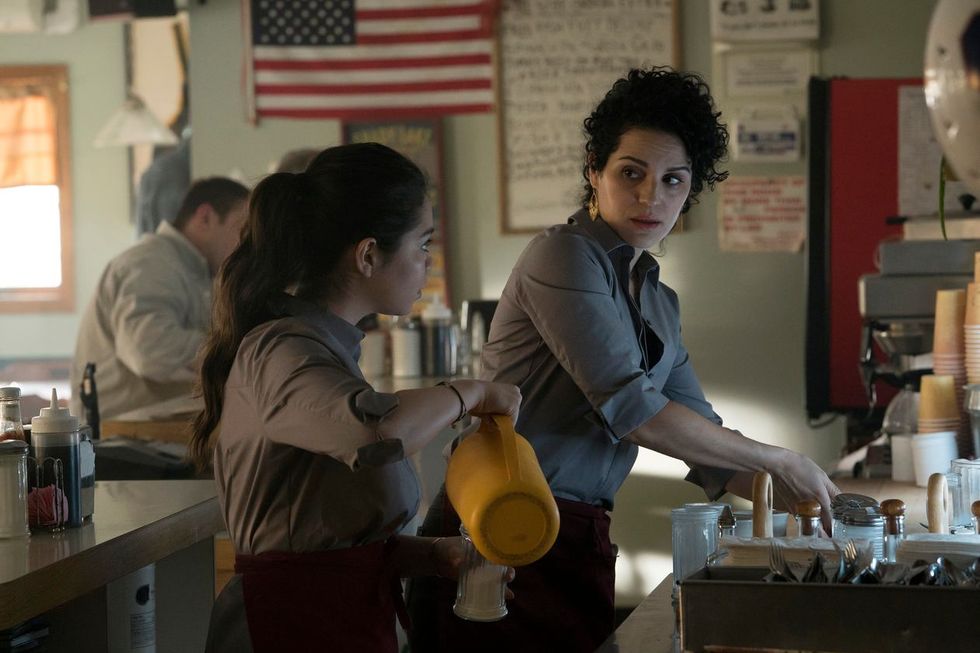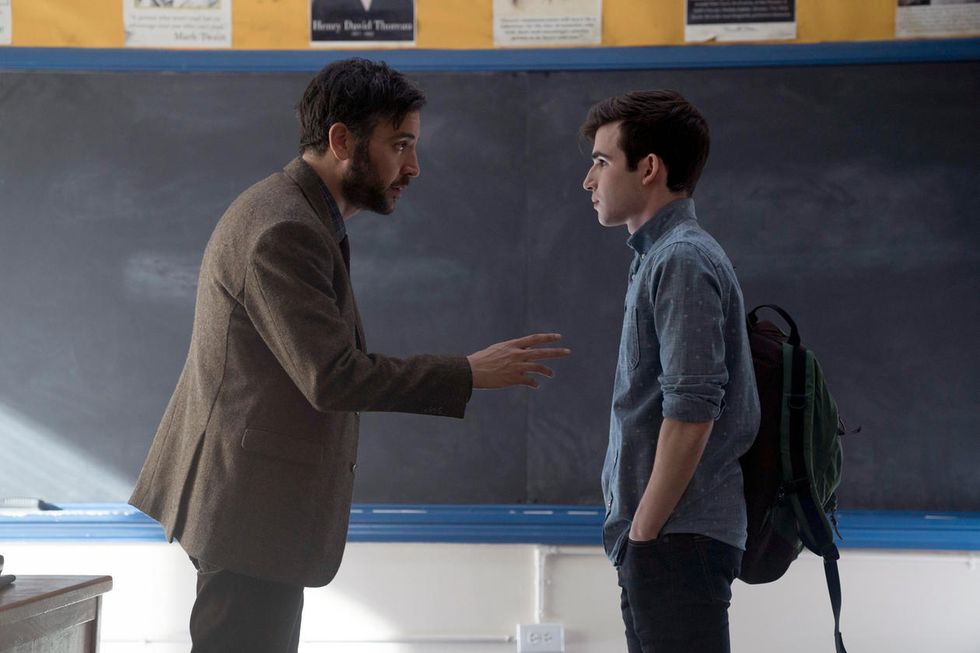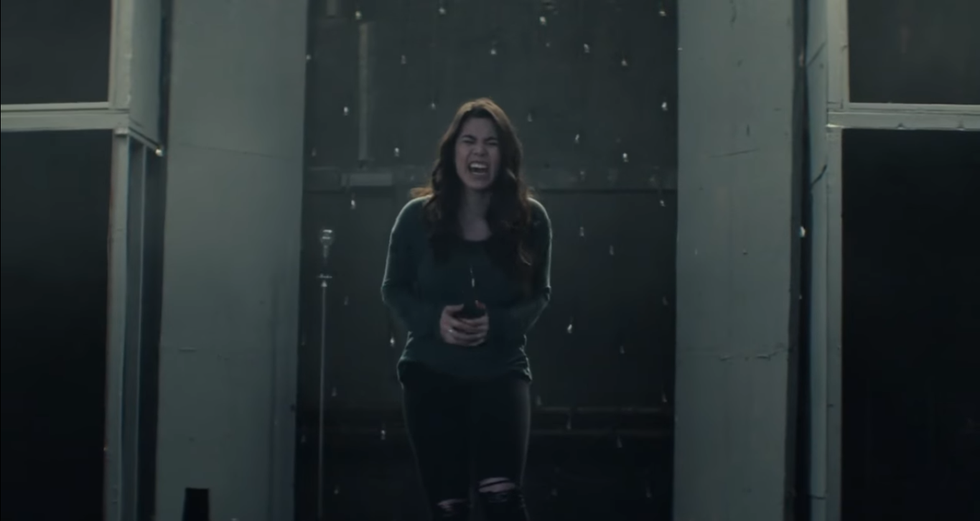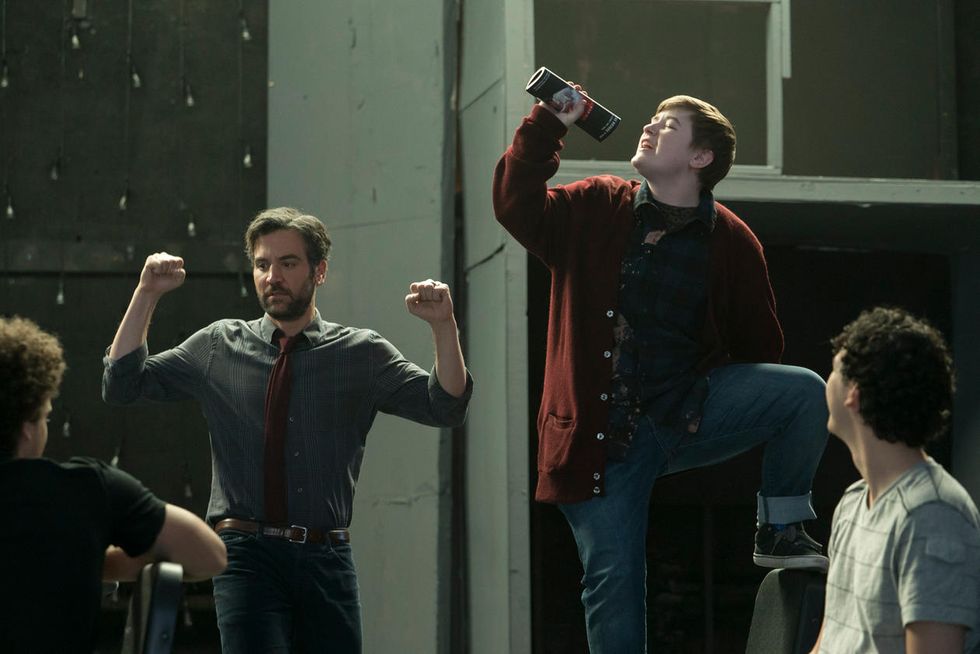NBC has made another impact on my life with their new show, "Rise" which premiered on March 13th this year. Based on the book, "Drama High" by Michael Sokolove, "Rise" tells the true story of High school theatre teacher, Lou Volpe.
Sokolove chronicled his experience as one of Volpe's students in his book and it is all sorts of beautiful.
My expectations for this show were high.
I am an aspiring high school theatre teacher; this is everything I could want/need and I hoped with every ounce of my TV-watching being that this was going to be great. And I hoped right.
This show has surpassed every single one of my expectations in the mere four episodes that have been released and I cannot thank NBC and creator, Jason Katims, enough.
Teaching is something very dear to my heart and I am deeply saddened by the wrongful representations of educators that reign over the entertainment industry. Too often, educators are characterized as lazy, uncaring, and spiteful — which, in my experience, is the furthest from the truth.
And I praise NBC for placing Josh Radnor and Rosie Perez as the lead educators in this show; they represent everything a teacher and high school theatre educator should be.
The show has everything just right.
Spoilers Below
1. The use of Spring Awakening.
If this is not an obvious enough reason, I will elaborate: "Spring Awakening" is beautiful; it is intricate and raw and intense. It deals with sex, abuse, abortion, suicide, homosexuality, molestation and depression.
Overall, it is a piece of art that everyone should experience in their lives and I think it was perfect for this specific group of high schoolers to delve into.
2. Theatre is hard.
Because of performance-based shows, people have been accustomed to believe in a "Glee"-esque idea that art is created overnight; that rehearsals aren’t necessary; harmonies aren’t worked one hundred times over and people still forget what they are supposed to sing; budgets aren’t real and heart-shattering. All of which is false and proven false in "Rise."
3. Breaking stereotypes and generalizations among students.
The lead male in their show is the Quarterback who is taking care of his sick mother after school. One of the supporting actors is transgender. Theatre is a place where stereotypes disappear. Generalizations do not exist. And "Rise" does well showing that.
4. The teachers have lives.
WHAT? Teachers have lives? This show shows the family life of Mr. Mazzuchelli and makes a point to show how difficult it can be to raise your own children while caring so much for your students as well. AND the assistant director, Ms. Wolfe, is even shown on an actual date! Teachers can go on dates too!
5. The students have lives outside of high school... and none of them are perfect.
Lilette works as a waitress with her mother who happens to have zero control over her life. Like I mentioned before, Robbie is helping his sick mother outside of school. Simon is having difficulties with his sexuality and his disapproving conservative parents.
Gwen's father cheated on her mother and she did not get the role she wanted. Gordy, Lou's son, is dealing with alcoholism. Maashous is sleeping in the light booth to avoid staying at his foster home. Every student has their difficulties.
6. Teachers change lives.
Teachers like Mr. Mazzuchelli invest everything into their jobs and their students. And. They. Care. For. Every. Single. One. Of. Them.
He helps students get out of their comfort zones, puts his faith in his performers, and makes every single on of them feel important. Not to mention, he brings a student of his into his own home to keep him from sleeping in the light booth.
7. Students change lives.
Students affect the lives of teachers just as much as teachers affects the students. Mr. Mazzzuchelli sees everything in a completely different way after he takes in one of his students and starts working one-on-one with them in the theatre. Another thing that stuck out to me was how saddened Ms. Wolfe was to see Simon move schools.
8. Theatre changes lives.
Before Gwen was in theatre she was failing one of her classes. Before Robbie was in theatre, he would have never stood up to his "friends" when they were being ignorant. Before Michael was in theatre, he was still going by his birth name. Before Lilette was in theatre, she was afraid to speak up. Before Mr. Mazzuchellu was in theatre, he was just going through the motions of his life and had no control over what happened next. The benefits of theatre are endless.
Teaching is hard. Theatre is hard. But they are both incredibly rewarding when you get to see the lives you have impacted through art.
Lou Volpe, thank you for inspiring Michael Sokolove. Michael Sokolove, thank you for transcribing "Drama High" to inspire the many people who have read your book. And NBC's "Rise," thank you for exposing the ugly parts of teaching theatre as well as the true beauty of it all.

